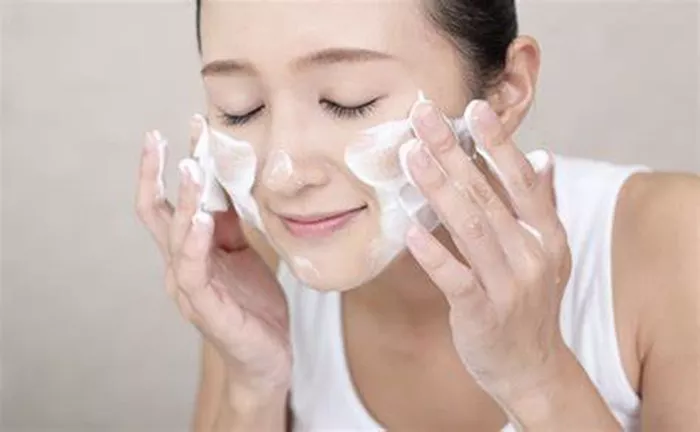In recent years, skincare has become a significant topic of conversation, not just among beauty enthusiasts but across various demographics. With the rise of the beauty industry, an increasing number of people are adopting elaborate skincare routines, spending considerable time and money on products that promise youthful, radiant skin. However, a question that lingers in the minds of many is: Is it okay to not have a skincare routine at all? Can one maintain healthy skin without the use of specialized products or a daily regimen? This article explores these questions in-depth, examining the necessity of skincare, the benefits and potential drawbacks of skipping it, and the natural alternatives that can contribute to skin health.
Skin’s Natural Function
The skin is the body’s largest organ, acting as a protective barrier against environmental damage, pathogens, and dehydration. It has its own natural processes to maintain balance, such as the production of sebum, which moisturizes and protects the skin. The outermost layer of the skin, the stratum corneum, consists of dead skin cells and lipids that form a barrier to prevent water loss and protect against external aggressors.
This natural barrier is robust, and for many people, it may be sufficient to maintain healthy skin without additional intervention. The skin is also self-healing, with a continuous cycle of shedding and regeneration that typically occurs every 28 days. This cycle allows the skin to repair itself from minor injuries and environmental damage.
The Skincare Industry: A Double-Edged Sword
The skincare industry is booming, with countless products designed to target specific concerns such as acne, wrinkles, hyperpigmentation, and dryness. These products often contain active ingredients like retinoids, alpha-hydroxy acids, and hyaluronic acid, which are touted for their ability to improve skin appearance and health.
However, the effectiveness of these products can vary widely from person to person. Some individuals may see significant improvements in their skin, while others may experience irritation or even exacerbate their skin issues. Furthermore, the pressure to maintain a skincare routine can lead to stress and anxiety, particularly for those who feel overwhelmed by the sheer volume of products and conflicting advice.
See Also: What are the 4 basics of skincare?
The Case for Skipping Skincare
1. Skin Resilience and Adaptation
One of the main arguments for skipping skincare is that the skin is resilient and capable of adapting to its environment. The body has evolved over millions of years to protect itself, and the skin is no exception. Without the interference of skincare products, the skin’s natural processes can function without disruption. This can result in balanced oil production, fewer breakouts, and less sensitivity.
2. Avoiding Potential Irritants
Many skincare products contain ingredients that can be irritating to the skin, especially for those with sensitive skin types. Fragrances, preservatives, and certain active ingredients can cause redness, dryness, or allergic reactions. By forgoing skincare products, one can avoid exposing their skin to these potential irritants, thereby reducing the risk of adverse reactions.
3. Financial and Time Savings
A comprehensive skincare routine can be both time-consuming and expensive. From cleansers and toners to serums and moisturizers, the costs can quickly add up. By choosing not to engage in a daily skincare regimen, individuals can save both time and money, which can be redirected towards other priorities.
4. Mental Health Benefits
The beauty industry’s emphasis on flawless skin can contribute to unrealistic expectations and self-esteem issues. For some, the pressure to maintain a perfect complexion can lead to stress, anxiety, and obsessive behavior. Opting out of skincare can be a form of self-acceptance, allowing individuals to embrace their natural skin and reduce the mental burden associated with striving for perfection.
The Potential Risks of Skipping Skincare
1. Environmental Damage
While the skin is naturally equipped to protect itself, it is not invincible. Environmental factors such as UV radiation, pollution, and harsh weather conditions can take a toll on the skin. Without the use of protective products like sunscreen, the skin is more vulnerable to damage, which can lead to premature aging, hyperpigmentation, and an increased risk of skin cancer.
2. Dryness and Dehydration
For individuals with dry or dehydrated skin, skipping moisturizers and hydrating products can exacerbate these conditions. The skin may struggle to retain moisture, leading to flakiness, tightness, and discomfort. In such cases, a minimalistic approach to skincare, with the inclusion of a basic moisturizer, may be necessary to maintain skin comfort and integrity.
3. Acne and Breakouts
While some people may experience fewer breakouts by avoiding skincare products, others may find that their skin becomes more prone to acne. This is particularly true for individuals with oily skin, where a lack of cleansing can lead to clogged pores and an overproduction of sebum. In these cases, a simple cleansing routine may be beneficial to keep the skin clear and balanced.
4. Loss of Skin Vitality
Skincare products often contain ingredients that promote skin renewal, such as exfoliants that remove dead skin cells and stimulate collagen production. Without these products, the skin may appear dull and lackluster over time. While the skin’s natural shedding process does occur, it may not be as effective in maintaining a radiant complexion, especially as one ages.
Finding a Middle Ground
For those who are hesitant to fully commit to a skincare routine but also want to avoid potential skin issues, there is a middle ground. A minimalist skincare routine that focuses on the essentials can provide the benefits of skincare without overwhelming the skin or the individual.
1. Gentle Cleansing
Cleansing is the cornerstone of any skincare routine, as it removes dirt, oil, and impurities that can accumulate on the skin throughout the day. A gentle cleanser that is free from harsh sulfates and fragrances can effectively cleanse the skin without stripping it of its natural oils. Cleansing once a day, preferably in the evening, can be sufficient for most people.
2. Sunscreen
Sunscreen is arguably the most important skincare product, as it provides protection against harmful UV rays that can cause premature aging and increase the risk of skin cancer. Even if one chooses to skip other skincare products, applying sunscreen daily is crucial, especially if spending time outdoors. Look for a broad-spectrum sunscreen with an SPF of at least 30, and reapply as needed.
3. Moisturizing
For those with dry or sensitive skin, a simple moisturizer can help maintain the skin’s hydration levels and barrier function. Opt for a moisturizer with minimal ingredients and no added fragrances. If your skin is naturally oily, you may not need a moisturizer, as your skin’s natural oils can provide adequate moisture.
4. Occasional Exfoliation
Exfoliation can help remove dead skin cells and promote a smoother, more radiant complexion. However, it is not necessary to exfoliate daily. For most skin types, exfoliating once or twice a week is sufficient. Choose a gentle exfoliant, such as a mild chemical exfoliator with alpha-hydroxy acids (AHAs) or beta-hydroxy acids (BHAs), to avoid irritating the skin.
Natural Alternatives to Traditional Skincare
For those who prefer to avoid commercial skincare products altogether, there are natural alternatives that can support skin health. These options are often less processed and contain fewer chemicals, making them appealing to those with sensitive skin or a preference for natural ingredients.
1. Oils for Moisturization
Natural oils, such as jojoba oil, rosehip oil, and argan oil, can serve as effective moisturizers for the skin. These oils are rich in essential fatty acids and antioxidants, which can help nourish the skin and maintain its barrier function. They can be applied directly to the skin after cleansing, or mixed with other natural ingredients to create a DIY moisturizer.
2. Honey as a Cleanser
Honey is a natural humectant, meaning it attracts moisture to the skin. It also has antibacterial properties, making it an excellent choice for cleansing and treating acne-prone skin. To use honey as a cleanser, simply apply a small amount to damp skin, massage it in, and rinse with warm water.
3. Aloe Vera for Soothing
Aloe vera is well-known for its soothing and hydrating properties. It can be used to calm irritated skin, reduce redness, and provide lightweight moisture. Fresh aloe vera gel, extracted directly from the plant, is ideal, but store-bought gels with minimal additives can also be effective.
4. Oatmeal for Exfoliation
Ground oatmeal can be used as a gentle exfoliant to remove dead skin cells and soothe the skin. It is particularly beneficial for sensitive or irritated skin. To make an oatmeal scrub, mix ground oats with a small amount of water or yogurt to form a paste, apply it to the skin in circular motions, and rinse off with lukewarm water.
Conclusion
The decision to adopt a skincare routine is a personal one, and it ultimately depends on individual skin type, lifestyle, and preferences. For some, a comprehensive skincare regimen may provide the benefits of improved skin appearance and health. For others, the skin’s natural processes may be sufficient to maintain balance and protect against environmental damage. While it is certainly possible to maintain healthy skin without a dedicated skincare routine, certain factors such as sun exposure and skin type may necessitate the use of basic skincare products like sunscreen and moisturizer. Additionally, natural alternatives can offer a simpler, more holistic approach to skincare for those who prefer to avoid commercial products.In the end, the key to healthy skin lies in understanding your skin’s unique needs and finding a routine—or lack thereof—that works for you. Whether you choose to embrace a minimalist approach or indulge in a full skincare regimen, the most important thing is to listen to your skin and prioritize its health and well-being.
[inline_related_posts title=”You Might Be Interested In” title_align=”left” style=”list” number=”6″ align=”none” ids=”4983,5251,4596″ by=”categories” orderby=”rand” order=”DESC” hide_thumb=”no” thumb_right=”no” views=”no” date=”yes” grid_columns=”2″ post_type=”” tax=””]

































